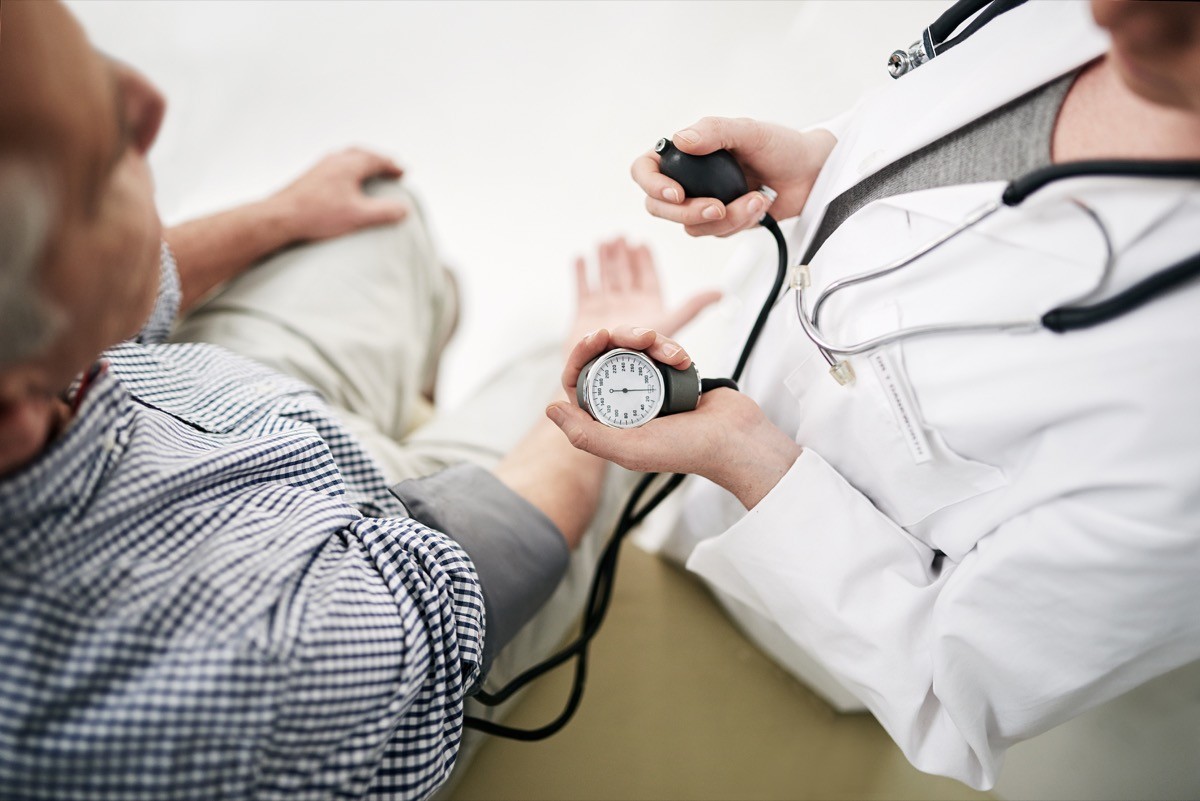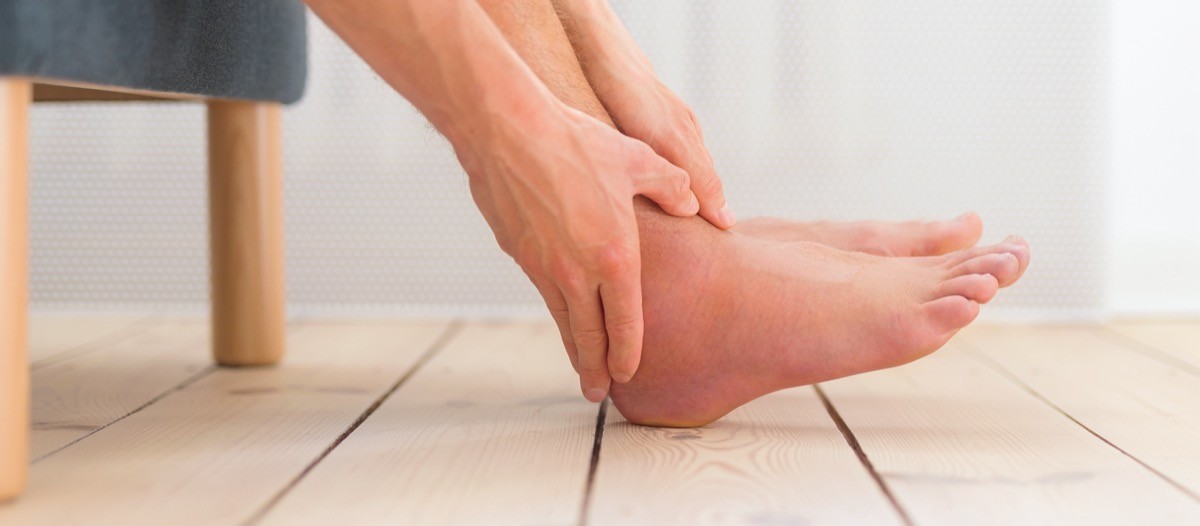7 Signs Your Diet Is Secretly Packed With Salt and Hurting Your Health

If you’ve ever felt terrible after eating high-sodium fast food, there’s a reason—your body really doesn’t like excessive amounts of salt. “Too much sodium can lead to high blood pressure, a leading cause of heart disease and stroke,” says the FDA. “Ninety percent of Americans are eating more sodium than is recommended. While almost 5 in 10 Americans have high blood pressure, in non-Hispanic Black adults that number increases to almost 6 in 10. Also, children and adolescents are also eating too much sodium. Evidence shows that children who eat foods higher in sodium can carry those eating habits into adulthood.” Here are 7 signs you could be eating too much salt.
RELATED: 7 Foods to Avoid With High Blood Pressure.
1
High Blood Pressure

Too much salt can lead to high blood pressure, doctors warn. “Eating too much salt is linked to hypertension, or high blood pressure, which increases a person’s risk of stroke,” David Trachtenbarg, MD, tells UnityPoint Health. “Reducing salt intake to 5,000-6,000 milligrams per day has shown to lower blood pressure.”
2
Kidney Stress

Too much salt can put pressure on your kidneys. “In most people, the kidneys have trouble keeping up with excess sodium in the blood,” according to Harvard University. “As sodium accumulates, the body holds onto water to dilute the sodium. This increases both the amount of fluid surrounding cells and the volume of blood in the bloodstream.”
3
Bloating and Discomfort

Too much salt can cause uncomfortable bloating. “If your kidneys can’t eliminate the salt you’re taking in from your diet, sodium starts to build up in your body,” clinical dietitian Amanda Meadows tells Houston Methodist. “And when you’re holding on to more sodium, your body tries to dilute it with water — increasing your blood volume and causing you to retain fluid.”
4
Fatigue From Poor Sleep

Salt can keep you up at night, disrupting sleep and causing fatigue. “Eating a meal that’s high in sodium at dinnertime can contribute to sleep disturbances, in part due to an increase in blood pressure and fluid retention,” Sandra Darling, DO, MPH, tells the Cleveland Clinic. “The result may be restless sleep, frequent awakenings and not feeling rested in the morning. I’ve experienced this first hand after going out for pizza. It’s a treat and a fun night out, but the after-effects are not fun. With too much salt in your bloodstream you may not sleep well that night — and feel tired or groggy the next day.”
RELATED: 7 Signs You’re Consuming Too Much Sodium.
5
Dehydration Headaches

Too much salt can cause headaches triggered by dehydration. “These headaches tend to be more painful than a mild one, giving a throbbing sensation as the blood vessels are being expanded,” nutritionist Pippa Hill tells The Independent. “They tend to come on between an hour or two after you’ve eaten, as sodium levels rise through the body.”
6
Thirsty Behavior

“Recent research shows that higher levels of sodium won’t necessarily cause people to be thirstier,” says the Cleveland Clinic. “But despite that, some people can’t help but chug down more liquids after eating salty foods.”
7
Swollen Feet

Too much salt can make your feet and hands swell, experts warn. “When too much salt is consumed, the body retains the extra sodium and increases the fluid outside of the cells,” registered associate nutritionist Olivia Burley tells The Independent. “This causes the kidneys to have reduced function, remove less water and therefore increase blood pressure.”